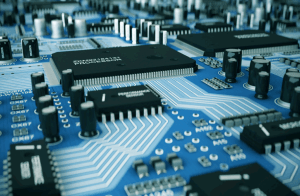Electronics News Byte: RPi Sales Boost, Covid-19 Grand Challenge, Semiconductor Demand Drops, Self-Healing PUFs, and More
April 20, 2020
on
on
Each day, while you are busy monitoring your health, helping loved ones, and working on new electronics projects, Elektor’s editorial team keeps track of what is happening in the global electronics industry. Curious about the most important electronics news from RPi to DARPA? We have you covered.
Stay Informed
Want to stay informed about electronics industry news? Visit Elektor’s Electronics News Byte page and subscribe to the tag. And make sure you sign up for Elektor's free weekly E-Zine.
News on RPi Sales, DARPA, and More
- Raspberry Pi Sales Increase in March 2020: Eben Upton, co-creator of the Raspberry Pi, recently announced on Twitter that March 2020 was the "second-biggest month ever for sales." Sales hit 640,000 units during a month dominated by Coronavirus news. (Tip: Subscribe to Elektor’s Raspberry Pi tag to stay on top of RPi-related news.)
- Europe’s First DARPA-Like Challenge Focuses on Covid-19: The Joint European Disruptive Initiative (JEDI) recently launched the JEDI Billion Molecules Against Covid-19 High Performance Computing Grand Challenge. Billed Europe’s “first-ever DARPA-type” challenge, the initiative is open to tech teams from around the globe interested in screening “billions of molecules with blocking interactions relevant to SARS-CoV-2 and fast-track the route to a therapeutic treatment.” The Grand Challenge’s grand prizes of up to €2 million could attract contributions from experts in the fields of molecular biology, high-performance computing, AI, and epidemiology.

- Semiconductor Demand to Drop 5%-15%? McKinsey & Company anticipates that the semiconductor market will drop by 5% to 15% in 2020. In an April report, the company predicts demand for semiconductors in wireless communication applications will likely decrease between 11% and 26%. On the other hand, the Coronavirus pandemic will likely help increase demand — due to increased Internet traffic and a high demand for video streaming — for semiconductors in wired applications by 8.% to 11%.
- Researchers Develop “Self-Healing” PUFs: Physically unclonable functions, or PUFs, are an alternative to traditional crypto solutions — particularly for the purposes of authentication — for IoT devices. Researchers in the Department of Electrical and Computer Engineering at the National University of Singapore (NUS) have developed self-healing and self-concealing PUFs. The former is “a novel adaptation technique that uses on-chip sensors and machine learning algorithms to predict and detect PUF instability.” The latter hides attack points from hackers.
- M&A News: Last week, NVIDIA announced that it received approval from China to acquire Mellanox, an Israel-based developer of high-speed interconnect technology. The company reported that $6.9 billion deal already received antitrust approval by the EU and Mexico, and the closing is slated for April 27, 2020.
Stay Informed
Want to stay informed about electronics industry news? Visit Elektor’s Electronics News Byte page and subscribe to the tag. And make sure you sign up for Elektor's free weekly E-Zine.Read full article
Hide full article


Discussion (0 comments)